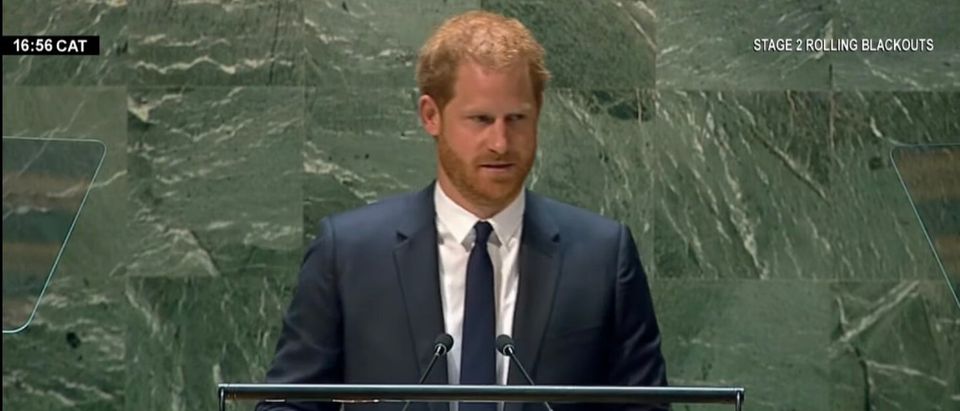Prince Harry claimed the U.S. Supreme Court rolled back “constitutional rights” in reference to the overturning of Roe v. Wade in a Monday address to the United Nations.
The prince’s speech commemorated the life of former South African President Nelson Mandela, connecting his hardships to the “endless stream of disasters and devastations” people are currently facing globally.
“This has been a painful year in a painful decade,” the prince said. “We’re living through a pandemic that continues to ravage communities in every corner of the globe. Climate change wreaking havoc on our planet with the most vulnerable suffering most of all. The few weaponizing lies and information at the expense of the many, and from the horrific war in Ukraine to the rolling back of constitutional rights here in the United States. We are witnessing a global assault on democracy and freedom, the cause of Mandela’s life.”
Harry argued that the world has grown less free in the last decade-and-a-half due to the decisions of the most powerful around the globe, causing Africa to suffer from the pandemic, the longest drought in nearly half a century due to extreme changes in the climate. (RELATED: Prince Harry Says America’s First Amendment Is ‘Bonkers’)
The prince referenced the Supreme Court overturning the 1973 landmark case Roe v. Wade in the case Dobbs v. Jackson Women’s Health Organization on June 24. The ruling returned the regulation of abortion to the states, as Roe deemed any law outlawing abortion before the point of fetal viability — 24 weeks gestation — is a violation of a woman’s right to privacy.
The overturn of Roe has enacted so-called “trigger laws” in 13 states which outlaw abortion except in cases threatening the life and health of the mother. Several judges have temporarily blocked these bans and other restrictions imposed in states throughout the country, deeming them a violation of their states’ constitutions.
Associate Justice Samuel Alito argued in the majority opinion that the Constitution makes no reference to abortion and therefore is not a protected right under any constitutional provision. He argued any right protected under the Due Process Clause of the Fourteenth Amendment must be “deeply rooted in this Nation’s history and tradition.”
“Roe was egregiously wrong from the start. Its reasoning was exceptionally weak, and the decision has had damaging consequences,” Alito wrote. “And far from bringing about a national settlement of the abortion issue, Roe and Casey have enflamed debate and deepened division.”
The ruling allowed for Mississippi’s 15-week abortion ban to remain in effect, directly challenging Roe by outlawing the procedure before the point of viability.
Republican Florida Gov. Ron DeSantis signed a 15-week ban into law in April, which has been temporarily blocked by Leon County Circuit Judge John C. Cooper. The law includes exceptions for cases threatening the life and health of the mother and fatal fetal abnormalities.


